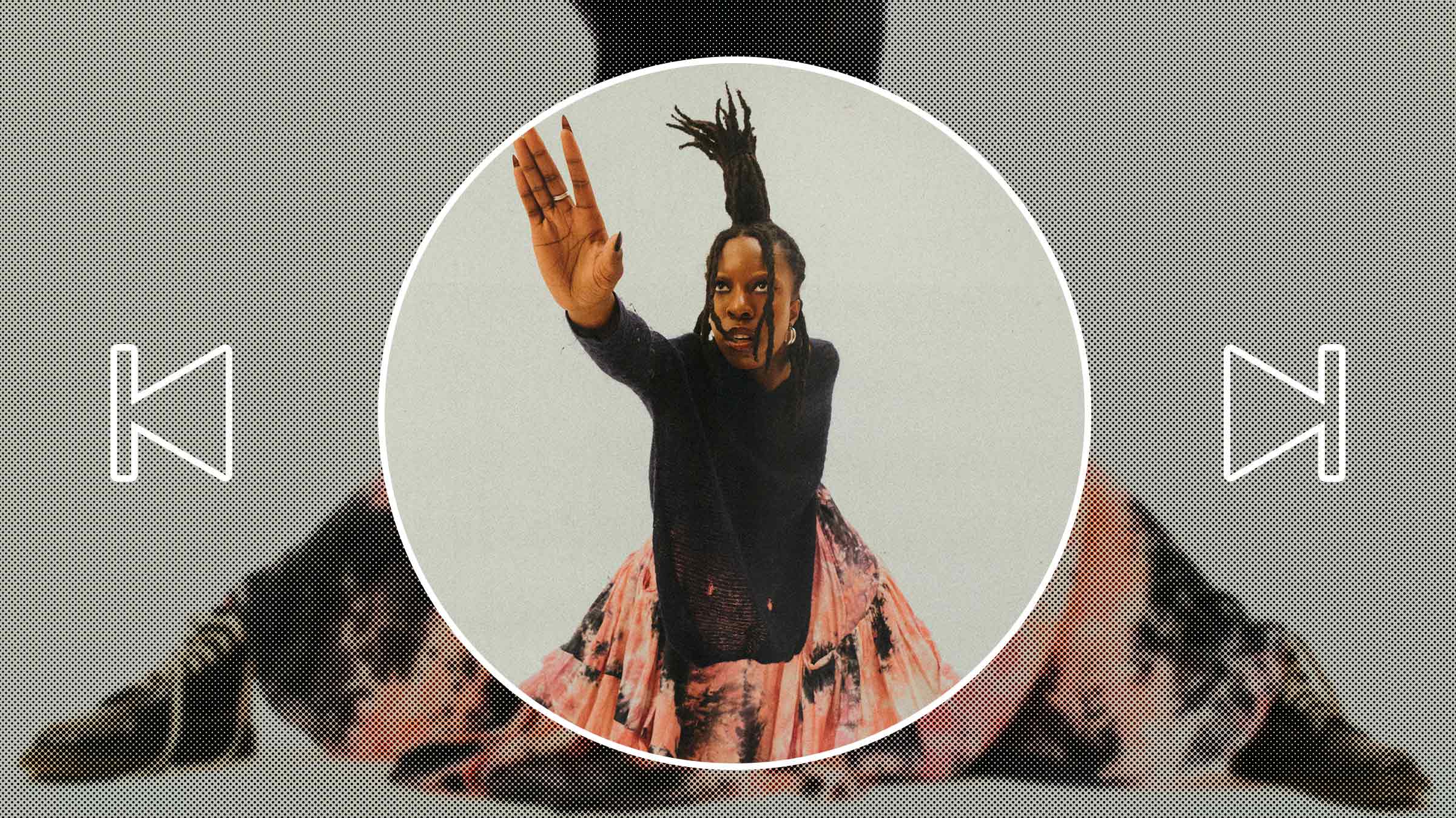Following the release of her latest single ‘Talk,’ the emerging singer-songwriter curates 9 vulnerability-driven tracks for Document
Halima does it all: She’s a skilled producer, a charismatic performer, and she’s got the raw and resonant vocals to back herself up. Above anything else, she can write an unforgettable song. Her melodies and lyrics are of the variety you can’t get out of your head. It’s the type of music that feels good—that relays something real—regardless of listeners’ preconceived allegiances to genre.
The British-Nigerian artist broke onto the R&B scene in 2018, with her debut single “If Love Was Green.” Since then, she’s worked quickly, releasing the EP Xyz and a handful of well-loved singles, including “Holding Me” and “Ford Cardinal”—both of which have garnered more than a million streams on Spotify alone. This month, she dropped her latest track “Talk.” It’s a stripped-down version of her quintessential work: “concise, minimal, naked,” in the artist’s words, “the opening to more conversations I want to have.”
To celebrate the track’s release, Halima curated an exclusive playlist for Document, finding the time to break down her cultural influences, her love for storytelling, and the methods she adopts to “live between genres.”
Morgan Becker: Tell me about your playlist.
Halima Edozie-Akinlade: These are a few songs that made me feel deeply, whether it was because their lyrics are brave, or because they are an expression of vulnerability. Sometimes it’s hard to do that when there is so much noise and judgment in the world. There’s no guarantee that you’ll be heard or understood. But to share in the hopes that there is another who feels the same way, who hears you—that always resonates with me. I’m thankful for these songs existing, reminding me to feel. After all, we live in a feeling universe.
Morgan: How’d you get started as a musician?
“I always see what I hear: I see where the kick hit, and where the snare followed, and I picture the chords rising like waves.”
Halima: I saved some pocket money one summer when I was 10 and bought myself a guitar. I’ve been addicted since.
Morgan: You grew up between Lagos and London, spent some time in a pop-punk band; you’ve produced and performed across a wide variety of genres, including R&B and neo-soul. Would you say that your approach to writing music remains sort of eclectic, stemming from a lot of different cultural and sonic influences? Or have you found a niche that feels like you?
Halima: I’ve found comfort in the spaces between genres. Moving through them allows for the most variety in expression. For me, genres are just ways of expressing a feeling. Of course, there are cultural roots tied to genres, but I come from such a diverse cultural background where everything bleeds into the other. I like to see my process in the same way.
Morgan: What does each city you’ve spent time in, including New York, mean to you? How do you define the differences in their creative landscapes?
Halima: The people, the smells, the color of the sky. I leave with the all-pervading experience.
Morgan: You recently released a new single, ‘Talk.’ Could you tell me about how that song came to be, and about the process of creating its accompanying visualizer?
Halima: This one came quickly and with fervor. I felt that I had been acting out of ego and without love for my partner, so when I got home that night, I was struck with clarity and I wrote ‘Talk.’ It wasn’t until a year later that I got in the studio with Mikey Hart to create the finished version. The demo was stuck in my hard drive until a friend told me it made them so emotional that I had to share it. I worked with Bellamy Brewster and Zainab Babikir on the video. There was a long conversation about how we all saw ‘feeling.’ I always see what I hear: I see where the kick hit, and where the snare followed, and I picture the chords rising like waves. Bellamy talked to me about seeing a story or a time, so we had to bridge our kinetic and narrative visions together. Our bridge, in a way, was Zainab; she saw texture and motion, which in many ways was the driving force of the visualizer.
“I’ve found comfort in the spaces between genres. Moving through them allows for the most variety in expression.”
Morgan: You started your own label, One Percent Genius. How did that come to fruition? Would you say that the label-to-artist dynamic changes for the better in this set-up?
Halima: I started my label in my last year of college as a way to release my own music and own it. It kind of sounds ridiculous when said so plainly. But that was the only way I could own what I had made. Now, almost five years later—goodness—it’s been the hardest but most fulfilling experience. I have hand-picked every part of my process, my journey, and I am proud of that.
Morgan: Tell me about your non-musical influences.
Halima: I love the theater. That was my first home. In terms of craft and study, I was very committed to drama and the stage. I went to drama school from a young age; I also attended playwriting programs as a kid. I just loved it. I feel like theater has found a place in my music. I like to tell stories. I want to explore that idea more.
Morgan: What are you looking forward to?
Halima: The rest of my life. Living fully. I have new music coming. I have a lot of new music coming. I’m excited to be in the world with fewer inhibitions.







